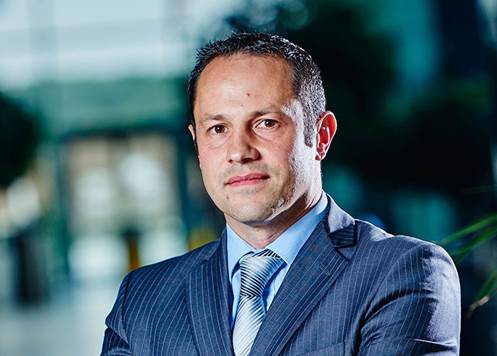
10.09.19 Panel Forum – Facing the talent and skills crisis in TECH businesses

10 SEPT 2019
Panel Forum – Facing the talent and skills crisis in TECH businesses.
An Urgent Issues Panel Forum: How to create, develop, manage and retain technology skills in STEM organisations
Organised and presented by Devonshire House, chaired and led by Talent Retention Solution and supported and hosted by the Royal Aeronautical Society and The Manufacturing Technology Centre.
![]()
![]()
![]()
![]()
Summary
Arguably, the future success and prosperity of the UK predominantly lies in TECH – seen globally as STEM – Science, Technology, Engineering and Manufacturing. In all of this, success lies with the People, Performance and Productivity. Finding, educating, deploying, managing, supporting these people is, arguably, today’s biggest challenge. Without the right technology-skilled people in the right places at the right time, any achievement will be sub-optimal – maybe non-existent. It is a major challenge that straddles all aspects of the UK’s everyday personal and business life and its future.
About this Urgent Issues Panel Forum
This important Urgent Issues Panel Forum explores current approaches to talent management and retention in Science, Technology, Engineering and Manufacturing businesses. It is about creating a better understanding of this crucial area and identifying key development areas. Its starting assumption is that Government appreciates this – and is taking some action – but there is a need for more momentum, more input, more information and accelerated support from all stakeholders which would be strengthened through collaborative action.
The output of this Panel Forum will be a Report distributed as widely and as creatively as possible and with practical help from stakeholders and planned to run on a continuous basis. Renewed and escalating pressures – not all Brexit driven – are demanding greater technology-based capabilities in the UK – arresting what is in decline and creating and developing what the future will demand. The focus needs to be on those initiatives that are judged to be feasible. But we do need a road-map for the future.
Crudely put – and wherever Brexit takes us – there is a need for the UK to sell more goods and services to overseas clients. This will be at the more technology driven end of this broad market and, not surprisingly, driven by people – enough people; people proud of what they do, with the right high-level skills and knowledge in the right places at the right time – and with continuous and enough support as serious and vital national assets deserve.
The Panel
Chairman – Terry Scuoler
 Terry Scuoler is Chairman of TRS and Chairman of The Institute of Export & International Trade. He is also Manufacturing Policy Advisor at Santander UK. Prior to this he was CEO of the EEF and, prior to this, Managing Director of Ferranti Technologies Ltd
Terry Scuoler is Chairman of TRS and Chairman of The Institute of Export & International Trade. He is also Manufacturing Policy Advisor at Santander UK. Prior to this he was CEO of the EEF and, prior to this, Managing Director of Ferranti Technologies Ltd
Terry Scuoler says:
I am an industrialist and passionate supporter of UK manufacturing and engineering. As CEO of the Engineering Employers Federation (EEF) (now MakeUK) I helped raise the profile of British manufacturing with government, the media and other stakeholders and, I hope, helped set the United Kingdom on a path to reindustrialisation.
My objective continues to be to ensure that Britain fully recognises the potential prosperity that a successful manufacturing sector can bring. Increased investment will lead to higher output and improved productivity which will in turn lead to higher wages and more secure skilled jobs, increased exports and global market share.
Along with that success will come a greater feeling of national self belief and esteem.
With the right resources and commitment it is an urgent yet very achievable objective.
John Copley
 Executive Vice President, Strategy at Rolls-Royce plc. Executive Vice President, Strategy. Business Strategy Director, Civil Aerospace Division. Chair, Strategy Working Group, Aerospace Growth Partnership. Fast Stream Civil Servant, UK Ministry of Defence, October 1988 – July 2000 11 years 10 months,London, Paris
Executive Vice President, Strategy at Rolls-Royce plc. Executive Vice President, Strategy. Business Strategy Director, Civil Aerospace Division. Chair, Strategy Working Group, Aerospace Growth Partnership. Fast Stream Civil Servant, UK Ministry of Defence, October 1988 – July 2000 11 years 10 months,London, Paris
Sir Brian Burridge
 Chief Executive at the Royal Aeronautical Society. Sir Brian spent a full career as a pilot in the Royal Air Force (RAF) holding a front line command at every level in the Service, including the national joint command in the 2003 Iraq war. He also spent a number of years in the UK Ministry of Defence in policy posts and left the RAF in 2006 as Commander-in-Chief Strike Command. Sir Brian spent 10 years with Leonardo, a top-ten global high-tech manufacturer in the aerospace, defence and technology sectors, rising to the position of Senior Vice President. During that time, he chaired two of the Group’s businesses and held board positions in the trade association, ADS, and the Defence Growth Partnership where he also chaired its innovation hub.
Chief Executive at the Royal Aeronautical Society. Sir Brian spent a full career as a pilot in the Royal Air Force (RAF) holding a front line command at every level in the Service, including the national joint command in the 2003 Iraq war. He also spent a number of years in the UK Ministry of Defence in policy posts and left the RAF in 2006 as Commander-in-Chief Strike Command. Sir Brian spent 10 years with Leonardo, a top-ten global high-tech manufacturer in the aerospace, defence and technology sectors, rising to the position of Senior Vice President. During that time, he chaired two of the Group’s businesses and held board positions in the trade association, ADS, and the Defence Growth Partnership where he also chaired its innovation hub.
Paul Rowlett
 Paul is Managing Director at the Manufacturing Technology Centre’s Advanced Manufacturing Training Centre (AMTC) in Coventry. The AMTC’s core proposition is to embed emerging themes of technology developed through research and development into apprenticeships and short courses to up-skill the advanced manufacturing sector. Creation of a commercially viable business generating income from multiple streams and the foundation for national growth.
Paul is Managing Director at the Manufacturing Technology Centre’s Advanced Manufacturing Training Centre (AMTC) in Coventry. The AMTC’s core proposition is to embed emerging themes of technology developed through research and development into apprenticeships and short courses to up-skill the advanced manufacturing sector. Creation of a commercially viable business generating income from multiple streams and the foundation for national growth.
Susan Elizabeth Garden, Baroness Garden of Frognal
 Susan is a Liberal Democrat member of the House of Lords – since 2007 – and former Government Whip and Spokesperson for a number of Departments including the Department for Business, Innovation and Skills. During her political career, she has led for the Government on Higher Education and Skills (BIS), and was Whip/Spokesperson for Education (DfE) and Defence (MOD). Work being done in the House of Lords around Talent and skills issues in the broadly defined technology sector in the UK does have a major bearing on what gets done in practice and Baroness Garden’s views and knowledge are highly important and influential.
Susan is a Liberal Democrat member of the House of Lords – since 2007 – and former Government Whip and Spokesperson for a number of Departments including the Department for Business, Innovation and Skills. During her political career, she has led for the Government on Higher Education and Skills (BIS), and was Whip/Spokesperson for Education (DfE) and Defence (MOD). Work being done in the House of Lords around Talent and skills issues in the broadly defined technology sector in the UK does have a major bearing on what gets done in practice and Baroness Garden’s views and knowledge are highly important and influential.
Who are the stakeholders and what do they want?
The purpose of this Urgent Issues Panel Forum is to pool information, thoughts and ideas for the benefit of stakeholders – being those attending this Panel Forum and including:-
- Science, Technology, Engineering and Manufacturing businesses with concerns about finding technical Talent and their retention and management.
- Current and Prospective TRS Members, Sponsors, NGOs and representatives from Government.
- Director level Business Leaders – interested in innovative approaches to talent management and retention
- Senior level service providers – corporates and individuals – keen to assess commercial opportunities.
The Programme
The Programme starts at 5pm for refreshments followed by the Panel Forum at 5.30pm till 7.00pm which will be followed by drinks and finger food with a formal close at 8pm.
The Agenda
- Charles Russam, Managing Director of Devonshire House introduces this Urgent Issues Forum and Terry Scuoler, the Chairman of the Panel.
- Terry Scuoler summarises the purpose and what those attending ought to be looking to get out of it and introduces his Panellists – each having five minutes to present their story and their views.
- Terry Scuoler invites questions and comments from the audience and responses from the Panellists.
- Winding Up – by Richard Smith, Engagement Director at TRS.
The Debate will be built around a number of pre-agreed questions which will be selected from the following comprehensive summary and which will form the base for the interactive Q&A part of the Forum.
We will talk about money separately and at the end, otherwise it might block out the real issues! Where does – should – the money and funding come from?
Is there really a STEM skills shortage in the UK?
What is it and where is it? Year on year, for decades we see reports which lament skills shortages with captains of industry seeking solutions. So what is the issue?
- Acknowledging the differing but inevitable complexities, what are the challenges and constraints? Can we find a skills strategy which actually works – a strategy which is industry and government led and funded with cross-party agreement?
What are the views around structures for effective approaches to skills shortages?
Can we Identify the real need? Within the business world, is there too much complexity, imitative overload which can impact on employer interest, too much noise, poor continuity and a disconnect in government between departments and often within the same departments.
- Is it about Government and Industry really understanding each other and working locally, regionally and nationally on solving this in the short, medium and long term?
- How should ‘missions’ like Faraday support skills development and joining up those departments in Government?
Where are the structural bottlenecks?
15% of UK graduate work force is inactive. This equates to 1.8 million people. Of that the split is 85% female, 15% male*. (From the ) We need 1.82 Million Engineers by 2022. (From the IET.) 56.4% of Mothers are NOT in full time work. YouGov Survey 2012
- The Immediate difficulty companies have is finding & recruiting the right people.
- How can we support businesses to train and invest in staff, such a apprentices or retraining where there are shortages?
- Pre-occupied with the immediate/over reliance on recruitment agencies – short term solutions which can often drift into the long-term norm (well, we have always done it this way etc). This is more about coping – not investment into solutions which could prevent skills shortages longer term or at least reduce dependency.
- The loss of trained STEM workers from the workforce – can be due to maternity, paternity, lack of childcare provision, caring responsibilities, illness, redundancy from jobs, relevance of skills to future STEM roles etc.
- The next generation and beyond of skilled workers – which involves attracting young talent from universities and colleges, developing their capability. Multiple activities and initiative overload – Simplification needed!
- How do we present manufacturing / STEM as a good investment for long term careers for people? Recognising that lifelong learning will be needed.
Who needs to do what – for immediate impact and for the longer term?
- Greater industry wide focus by Employers and Government to support retaining, developing and redeployment of skilled people.
- Piloting a Mission based approach with the Industrial Strategy?
- Doing more with the skilled people we have in the here and now – National Interest.
- Longer term – to make this approach the Industry Norm.
- Attracting and developing young talent, our next generation of employees.
What do we need to be aware of in the coming months and years?
- Reduced access to EU labour,
- Reduced skills pool.
- Failure to push greater incentives for Students and Institutions to provide the skills and education our economy needs.
- Failure to tap into the vast Talent available from under-represented people in our society
It is the intention to prepare a post event Report of the Debate designed to support influencing activities thereafter. The Report will reflect a recording of the Debate – strictly with specific permissions where appropriate.
We seek the broadest range of views and knowledge – the sort that resides with differing active experts in their fields. We need to look beyond basic knowledge and the obvious – without spoiling our business understanding of technical matters. We want spontaneous commentaries and information and we want spirited debate, disagreements and occasional laughter!
The Venue
The Royal Aeronautical Society – No.4 Hamilton Place, London W1J 7BQ – also known as the RAeS – is a British multi-disciplinary professional institution dedicated to the global aerospace community. Founded in 1866, it is the oldest aeronautical society in the world. The objectives of The Royal Aeronautical Society include supporting and maintaining high professional standards in aerospace disciplines, providing a unique source of specialist information and a local forum for the exchange of ideas and exerting influence in the interests of aerospace in the public and industrial areas. The Royal Aeronautical Society is a worldwide society with an international network of 67 branches. The Society now has over 22,500 members and has become an international, multidisciplinary professional institution dedicated to the global aerospace community. More info at www.aerosociety.com
About Talent Retention Solution
TRS (www.TalentRetention.co.uk ) have created an important specialist programme with many unique features around Talent Management and Retention focussed on leading edge companies, SMEs, Universities in manufacturing, engineering and technology sectors. They are keen to share information about their activities primarily in order to grow it. They see this as primarily achievable through collaborating with complementary organisations. TRS’s revenue comes from their Sponsors/Members – currently including Rolls Royce, BAE Systems, EDF Energy, Leonardo, Airbus – to name some of the best-known international technology-based companies.
TRS was initially a response to the 2010 Strategic Defence & Security Review, with predicted job losses circa 60 – 80,000 including supply chains. TRS previously worked successfully across several regions in the UK and scaled up to meet the challenge of retaining skilled people who might otherwise have been lost to the economy. The TRS business is based on their web platforms with easy direct access by members and candidates and, in particular:-
- Giving employers easy access to skilled individuals
- Connecting students to careers and opportunities
- Promoting apprenticeship candidates to a network of companies
- Connecting experienced professionals to employers
- Working with employers to support redeployment and restructuring
- Dedicated webpages for colleges, universities and employers
- Providing a forum for supporters of UK plc.
TRS has an innovative and thoroughly modern approach to a national endeavour to preserve and grow serious technical skills; to lubricate the processes of technology staff attrition – whilst also operating as a Not-for-Profit organisation. More info at http://talentretention.co.uk/
About Devonshire House Network
Devonshire House Network is a people-focused membership club for Director-level professionals in leadership roles who have an instinctive focus on the human side of enterprise. Our purpose is to create, for our members, thinking time and space for key business issues and where people make the difference. At the heart of Devonshire House are senior decision makers keen to discover and explore original thinking and information generated from all the Events we promote and delivered primarily through our broad range of high-level Speaker Events, Director Forums, our Debates and peer-to-peer networking. Devonshire House also exists for the benefit of its Stakeholders. These are Partner Firms, Sponsors, Reciprocal Arrangements, Corporate Members and Personal Members– and to these, Devonshire House seeks to offer another route to market. We also go out of our way to benefit Members Guests and our Speakers where mutual opportunities arise. Our aim is to cover our operations and development costs. More info at:-Charles.russam@DevonshireHouseNetwork.co.uk Or visit:- www.DevonshireHouseNetwork.co.uk
Date & Time
Location
The Royal Aeronautical Society
No.4 Hamilton Place
London W1J 7BQ

